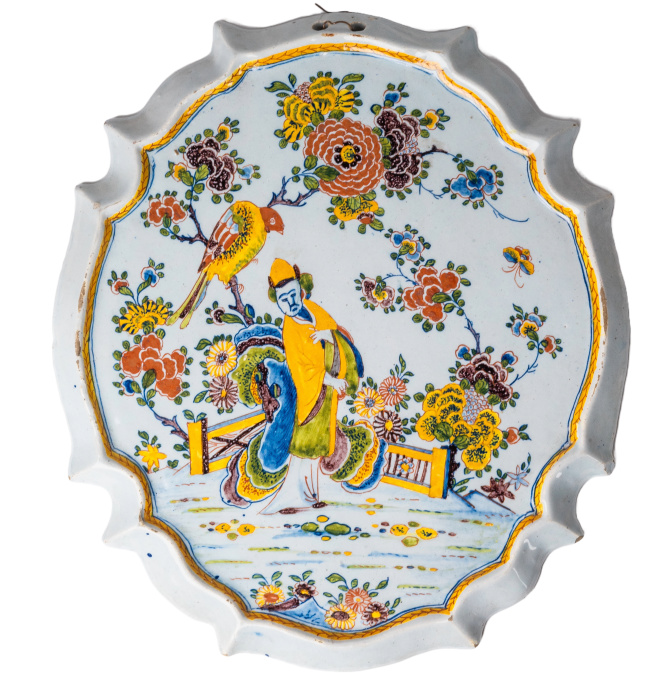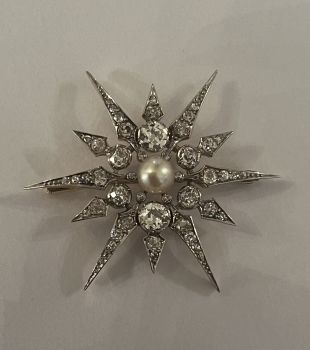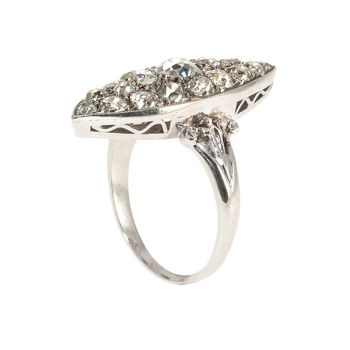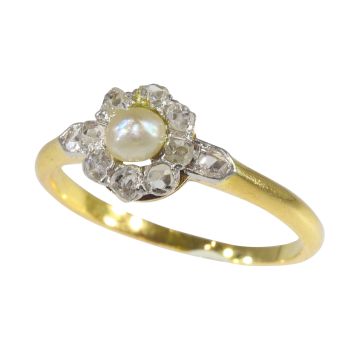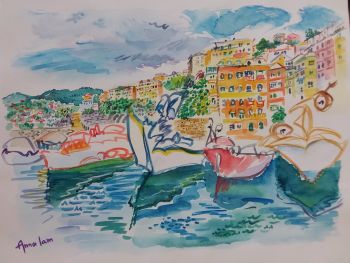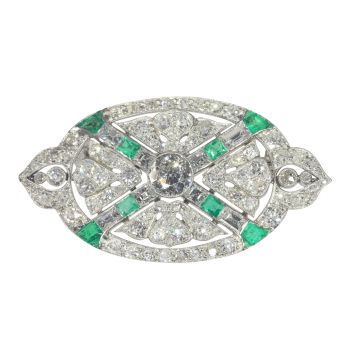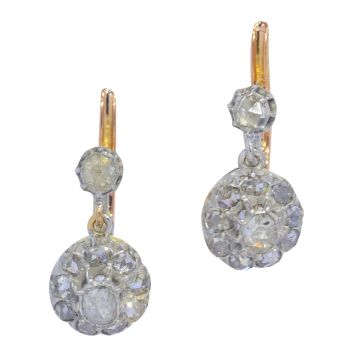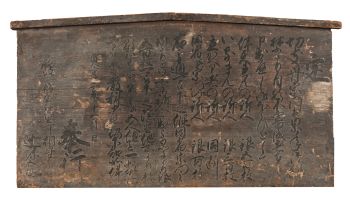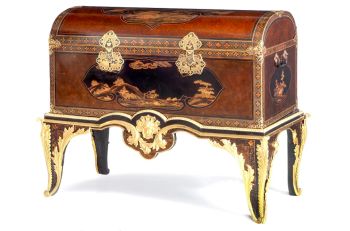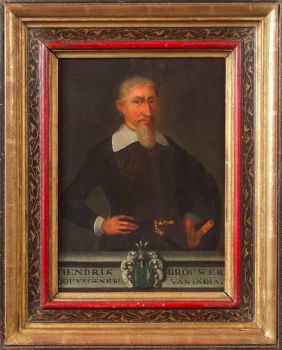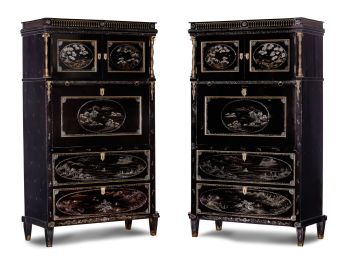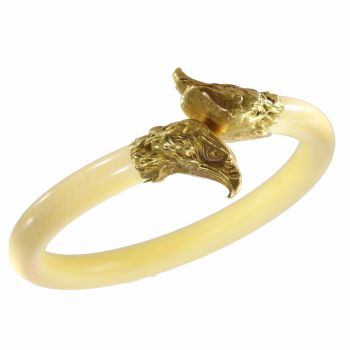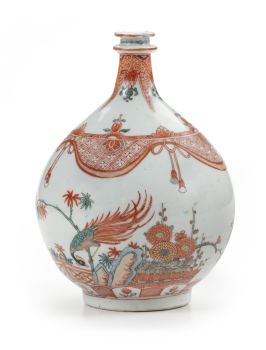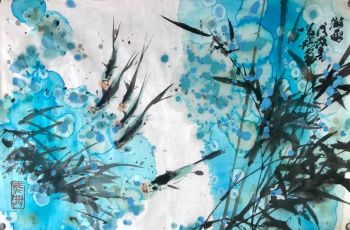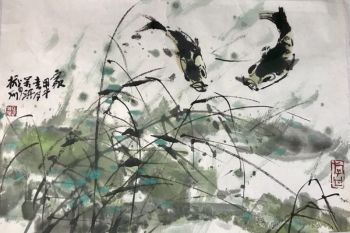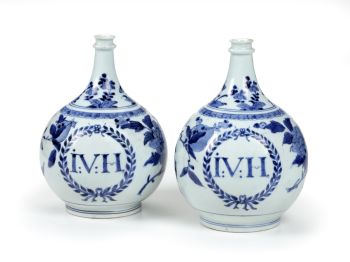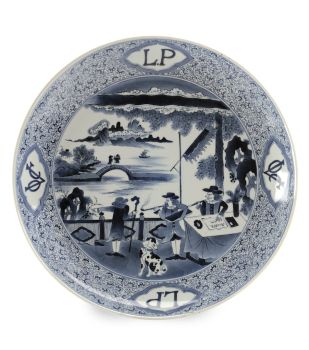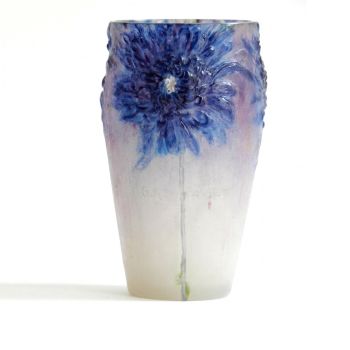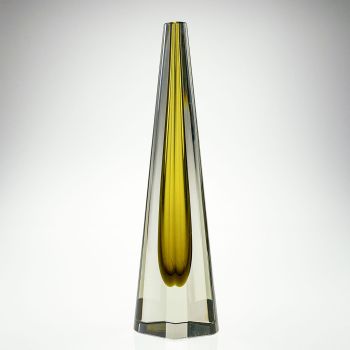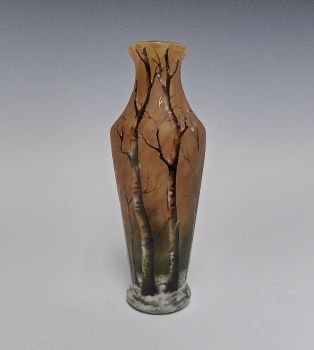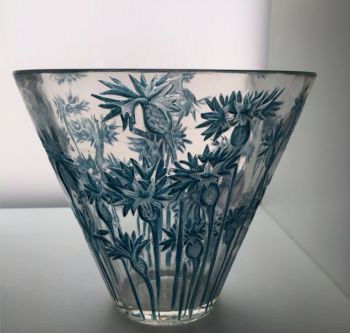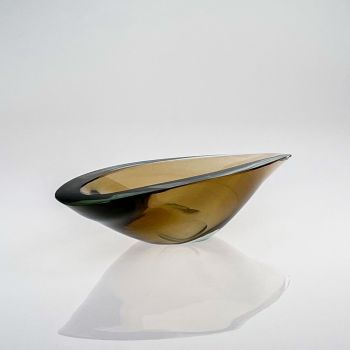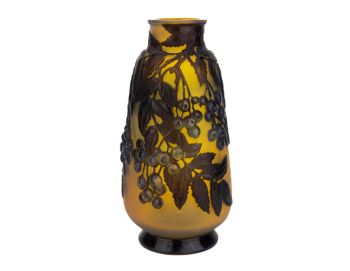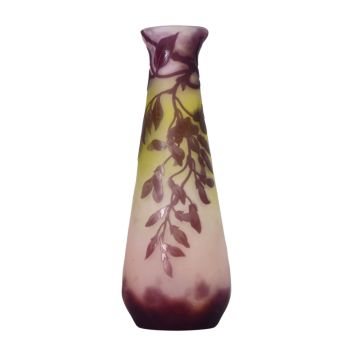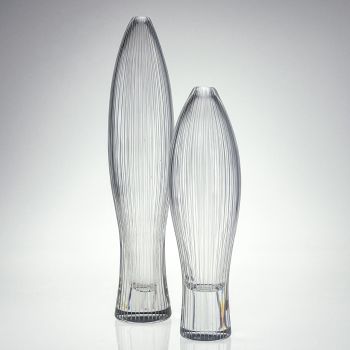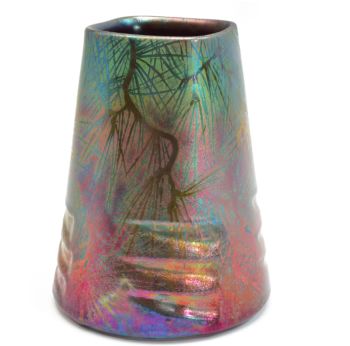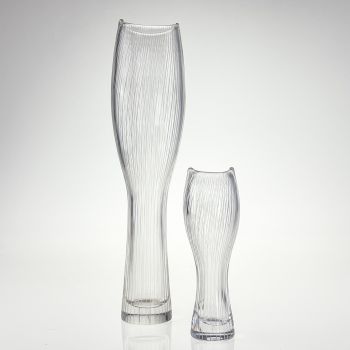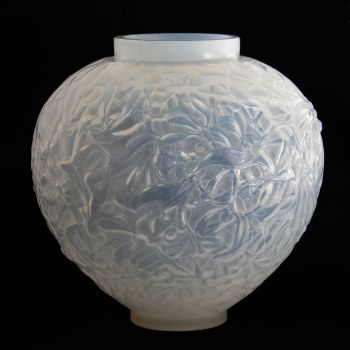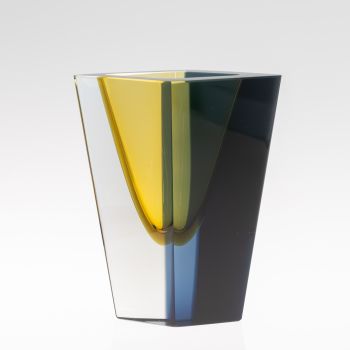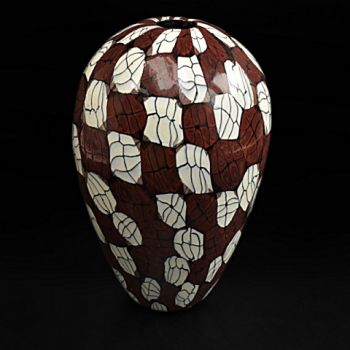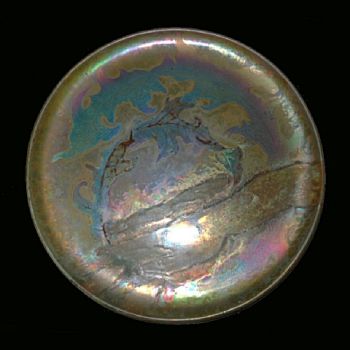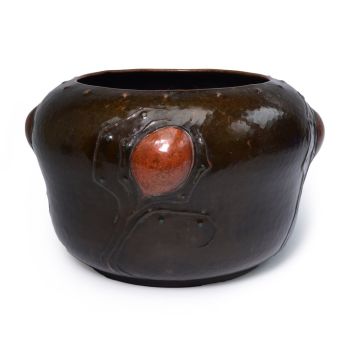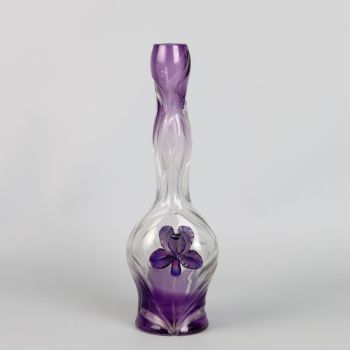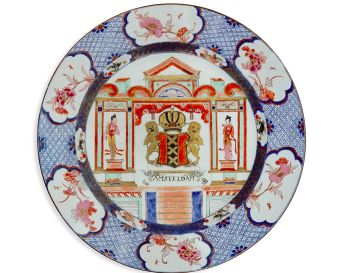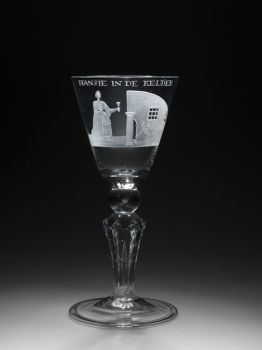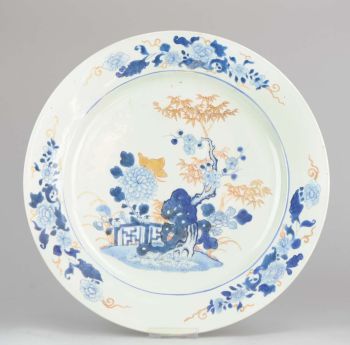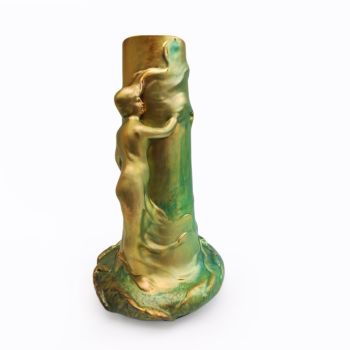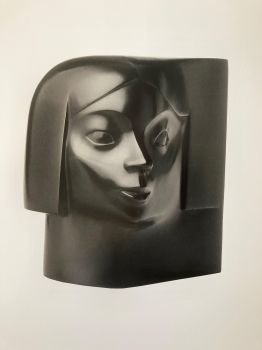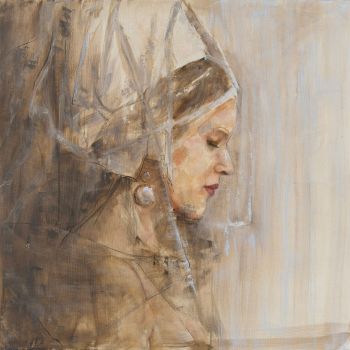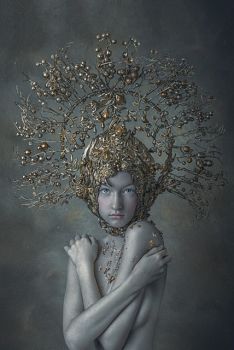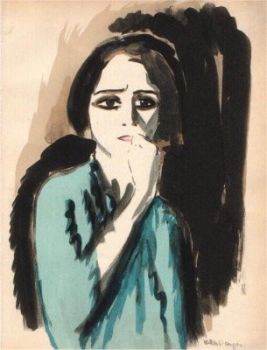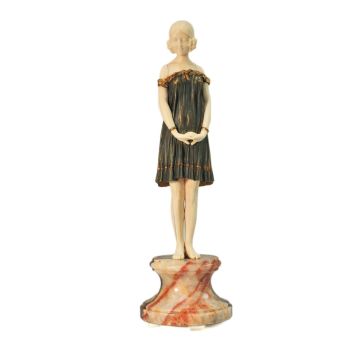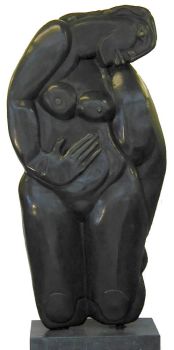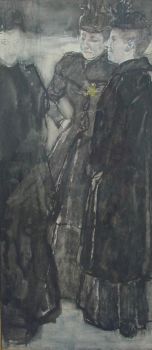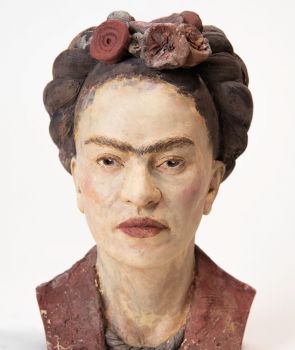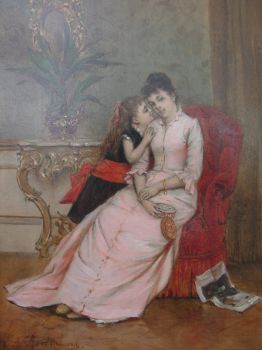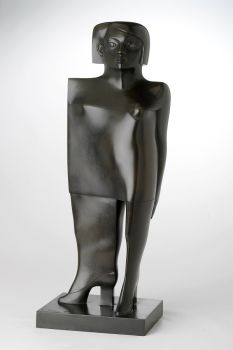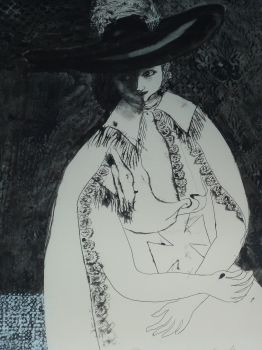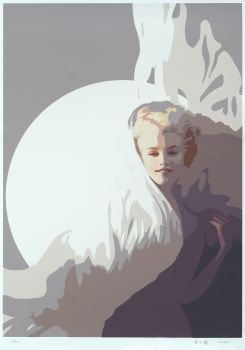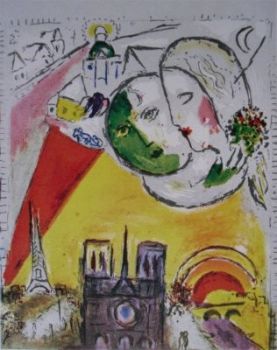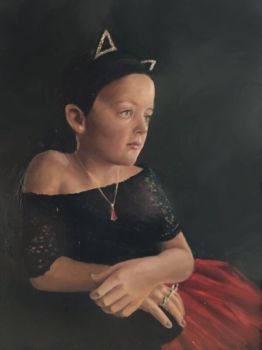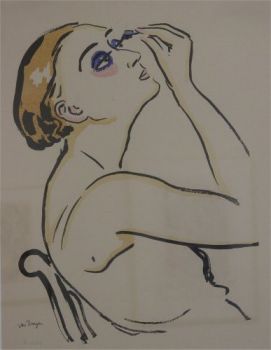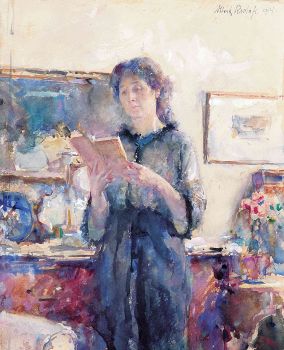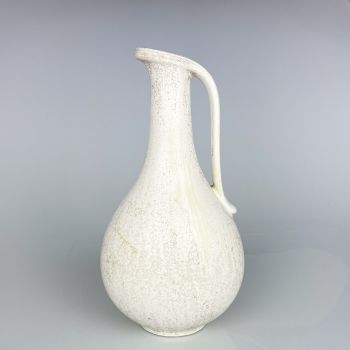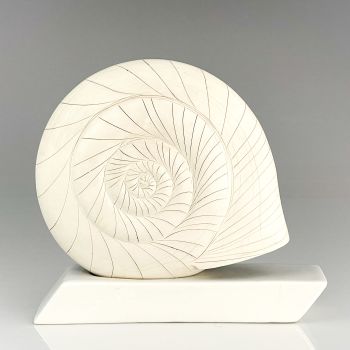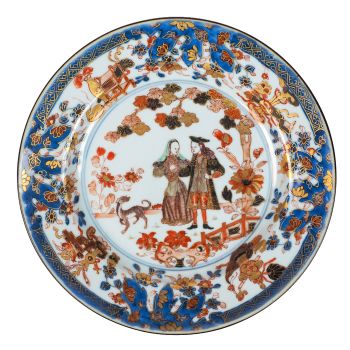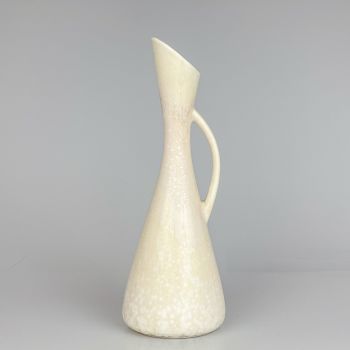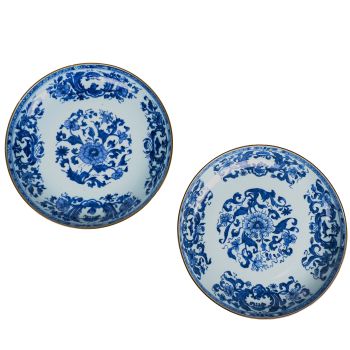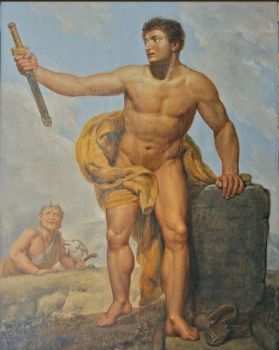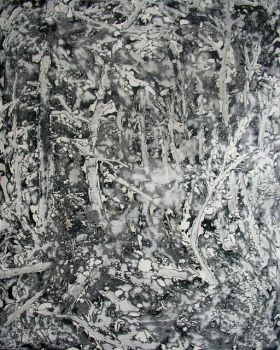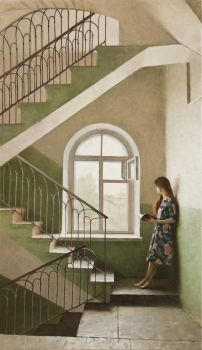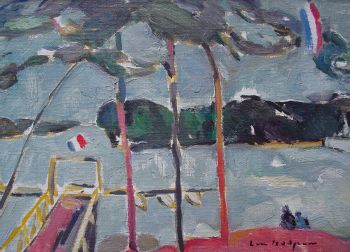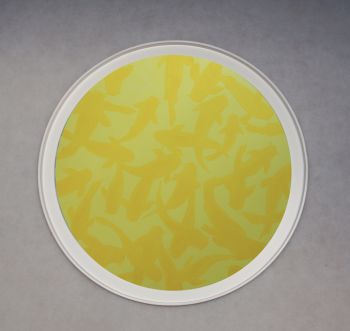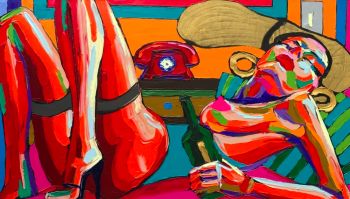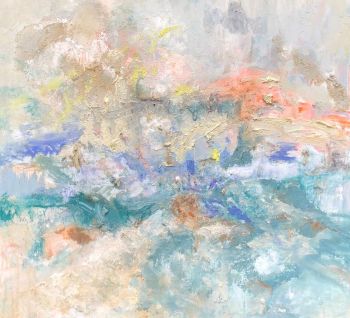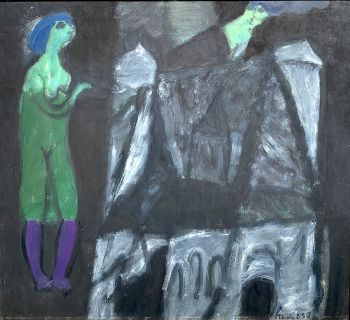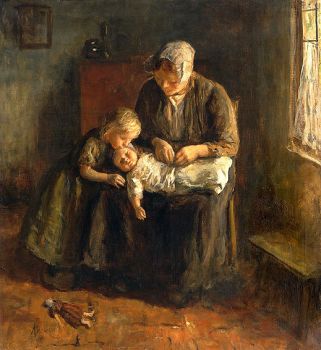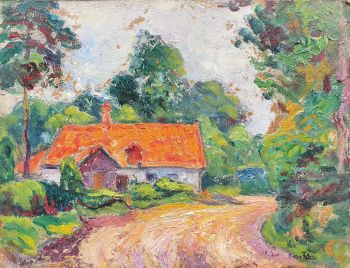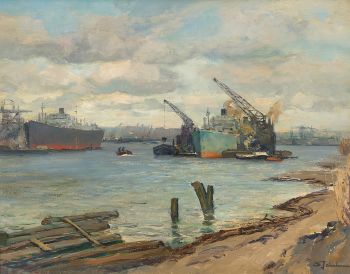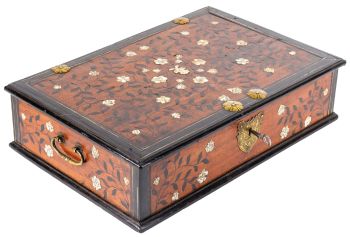Dutch Delft chinoiserie plaque, 18th century 1760
Artiste Inconnu
glaçageCéramiqueFaïencePeindre
35 ⨯ 31 cm
ConditionVery good
€ 1.950
Verkoulen Oriental & European Antiques
- Sur l'oeuvre d'artA colorful grand feu oval shaped Delft chinoiserie plaque with a Long Eliza, crawl and peony flower decoration, 18th century, around 1760, Delft, Holland.
Dimensions: 35x31 cm.
Probably attributable to the pottery factory 'The White Star / De Witte Ster'.
The word "plaque" has its roots in Latin. It is derived from the Latin word "placa," meaning a flat, thin plate or slab. Antique plaques were especially made for decorative proposes. This particular plaque has a very unusual shape because the oval form has sharp ends looking like accolades. In this shape we can see the influence of the Rococo style. This style can be recognized by asymmetry and curved lines and had its main impact on interior decoration and applied art in Europe between 1730 and 1760.
The decoration is inspired by the Chinese Qianlong porcelain (1735-1796). The Long Eliza, crawl and peony flower are located in a typical Chinese fenced garden with rocks. In the second half of the 18th century these decorations became popular for especially the design of plaques. This can be explained by the influence of the Rococo style which typically displays lighthearted and elegant scenes.
The object has a striking color scheme. We can mainly see the red, yellow and deep blue but also a soft green, manganese (purple) and lighter blue. The use of this color scheme indicates a great craftmanship because of the time-consuming baking processes that was necessary to realize the result.
This plaque can probably be attributed to the pottery factory 'The White Star / De Witte Ster'. A similar decorated example has been auctioned in 2018, with the mark of this factory on her back (which is also a star)
Condition: good condition, minimal damage to the edge which is usual for Delft pottery. No defects or restorations.
Reference: A similar example but with another border is in the collection of Musée Ariana, Ville de Genève (inventory number; AR 2007-146-2). This work features on the cover of the book (and exhibition) of Anne-Claire Schumacher “La donation Clare van Beusekom-Hamburger, Faïences et porcelaines des XVIe-XVIIIe siècles” 2010.
For comparable examples see:
-Christies 13 November 2019, Live auction 17185 ‘The Collector: European and English Furniture, Ceramics, Portrait Miniatures & Works of Art’, Lot nr. 139.
-Christies 24 June 2020, Online auction 19597 ‘Arts from the kiln: ceramics through the centuries’, Lot nr. 18. - Sur l'artiste
Il peut arriver qu'un artiste ou un créateur soit inconnu.
Certaines œuvres ne doivent pas être déterminées par qui elles sont faites ou elles sont faites par (un groupe d') artisans. Les exemples sont des statues de l'Antiquité, des meubles, des miroirs ou des signatures qui ne sont pas claires ou lisibles, mais aussi certaines œuvres ne sont pas signées du tout.
Vous pouvez également trouver la description suivante :
•"Attribué à …." A leur avis probablement une oeuvre de l'artiste, au moins en partie
•« Atelier de …. ou « Atelier de » À leur avis, une œuvre exécutée dans l'atelier ou l'atelier de l'artiste, éventuellement sous sa direction
•« Cercle de… ». A leur avis une oeuvre de la période de l'artiste témoignant de son influence, étroitement associée à l'artiste mais pas forcément son élève
•« Style de … ». ou "Suiveur de ...." Selon eux, une œuvre exécutée dans le style de l'artiste mais pas nécessairement par un élève ; peut être contemporain ou presque contemporain
•« Manière de… ». A leur avis une oeuvre dans le style de l'artiste mais d'une date plus tardive
•"Après …." A leur avis une copie (quelle qu'en soit la date) d'une oeuvre de l'artiste
•« Signé… », « Daté… ». ou « Inscrit » À leur avis, l'œuvre a été signée/datée/inscrite par l'artiste. L'ajout d'un point d'interrogation indique un élément de doute
• "Avec signature ….", "Avec date ….", "Avec inscription …." ou "Porte signature/date/inscription" à leur avis la signature/date/inscription a été ajoutée par quelqu'un d'autre que l'artiste
Êtes-vous intéressé par l'achat de cette oeuvre?
Related artworks
Artiste Inconnu
Japanese transition-style lacquer coffer 1640 - 1650
Prix sur demandeZebregs & Röell - Fine Art - Antiques
Artiste Inconnu
The Stamford Raffles Secretaires.1800 - 1813
Prix sur demandeZebregs & Röell - Fine Art - Antiques
1 - 4 / 12- 1 - 4 / 5
René Lalique
Un ancien vase 'Bluets' conçu par René Lalique (1860-1945)1910 - 1920
Prix sur demandeLennart Booij Fine Art and Rare Items
1 - 4 / 24- 1 - 4 / 24
- 1 - 4 / 24
- 1 - 4 / 8

